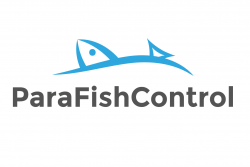European-wide study reveals negligible risk for human health of zoonotic parasitic worms in farmed fish
From spring 2016 to winter 2017, more than 7,000 fish were analysed from commercial aquaculture farms throughout Europe, including Croatia, Denmark, Greece, Hungary, Italy, Norway, Spain and Turkey. No zoonotic parasitic helminths, such as Anisakis, were found in any of the examined fish, at a confidence level of 95-99%. This is the largest study ever conducted in Europe and the results have been even better than expected. “This is great news for European aquaculture,” said Dr Miguel Ángel Pardo from AZTI Tecnalia, ParaFishControl project partner; “results indicate that consuming fish from European farms presents negligible risk for human health when it comes to zoonotic parasitic worms.” These results are part of a larger survey of marine and freshwater farmed fish undertaken by ParaFishControl, which aims to improve our understanding of fish-parasite interactions and develop innovative solutions and tools to prevent, control and mitigate harmful parasites which affect the main fish species farmed in Europe. This effort was part of the “Fish Product Safety” work package, led by AZTI in collaboration with six other consortium members from across Europe (Spanish National Research Council, University of Bologna, Hungarian Academy of Sciences, University of Copenhagen, Hellenic Centre for Marine Research, and University of Bergen). Dr Miguel Ángel Pardo explained the importance of these positive results, which “have led us to design more specific research to be carried out on runts as a potential parasite carrier and the feed as possible transmission vector. This will allow us to assess all the crucial aspects in the infection of fish by zoonotic parasites.” The study itself will be published in peer-review journals and will be accessible through the ParaFishControl project website. These results are a significant indicator of the overall success of the project thus far, with the overlying goal of safe and sustainable European seafood clearly being met. The final outputs of ParaFishControl will allow European farmers to manage their risk at very low levels, which will differentiate high-quality European aquaculture products from others worldwide. For more information on the project, please watch the ParaFishControl video: www.youtube.com/watch?v=9gjvZVUxh_Y To stay informed about the progress and results of ParaFishControl, visit the project’s website at www.parafishcontrol.eu For more information and press queries, contact Marieke Reuver, AquaTT Programme Manager, email: marieke@aquatt.ie Notes for Editors ParaFishControl is a research and innovation project which has received funding under the EU’s Framework Programme for Research and Innovation, Horizon 2020, Grant Agreement no. 634429. The project will run for five years from 2015 to 2020. The ParaFishControl consortium of 28 partners represents leading organisations in their respective fields of work from 13 European countries. The project is coordinated by Agencia Estatal Consejo Superior de Investigaciones Cientificas (CSIC), Spain. AquaTT is the project dissemination partner. AZTI Tecnalia is a Technology Centre which develops sustainable products, services and business initiatives aimed at activating the industrial make-up while recovering and preserving natural resources (www.azti.es). Zoonotic diseases are those spread between animals and people. Some of the most well-known human zoonoses are caused by helminth parasites, which feed on a living host to gain nourishment and protection. Depending on the parasitic species, they can cause poor nutrient absorption, weakness and different degrees of disease in the host.
Keywords
Countries
Austria, Belgium, Bulgaria, Cyprus, Czechia, Germany, Denmark, Estonia, Greece, Spain, Finland, France, Croatia, Hungary, Ireland, Italy, Lithuania, Luxembourg, Latvia, Malta, Netherlands, Poland, Portugal, Romania, Sweden, Slovenia, Slovakia, United Kingdom



